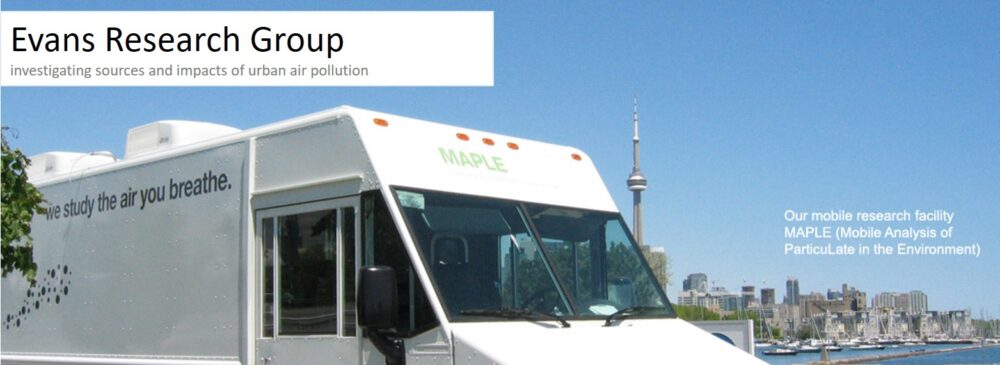 Photo source: CANUE
Photo source: CANUE
Canada is an urbanized country with over 80 per cent of Canadians living in urban areas and growing numbers of new immigrants that tend to settle in urban areas. To meet the need to learn how to design and modify cities to improve population health, the Canadian Urban Environmental Health Research Consortium (CANUE) was established in June 2016. CANUE (www.canue.ca) is established at the Dalla Lana School of Public Health at the University of Toronto and conducts environmental health research so policy-makers and urban and regional planners can make evidence-based decisions to help address this challenge. CANUE is focused on compiling and/or deriving standardized environmental exposure data about air quality, green spaces, walkability, noise, climate and extreme weather and other aspects of the urban/suburban environment for linking to human health research platforms. Specifically, using geographic information systems and satellite imagery to obtain geospatial and temporal data.
At the SOCAAR Seminar on January 18th, CANUE’s principle investigator Dr. Jeffrey R Brook, Adjunct Professor in the Department of Chemical Engineering & Applied Chemistry Environmental and in the Dalla Lana School of Public Health at the University of Toronto, spoke about CANUE’s strategic direction and research projects that are underway.
CANUE led by directors and team leaders with input from advisory panel members who are international experts in their respective fields. CANUE members provide expert advice on what to measure and how. They aim to bring information together and identify gaps to expand data sets and novel research questions to investigate.
The overall vision of the consortium is to change the current landscape of independent initiatives creating their own exposure data, through environmental health studies that capitalize on cohorts or environmental data, towards coordinated initiatives using and contributing to CANUE Exposure data. CANUE’s mission includes building a common, harmonized data platform that will enable integrated analyses of data. Combining air pollution, noise and transportation studies together will allow for better understanding of the dynamic interactions and causes, and for identifying methods to improve the health of communities. The aim is to communicate results of real-world applications of the integrated approaches to add more health knowledge to real-world decisions, for example in transit and urban planning.
